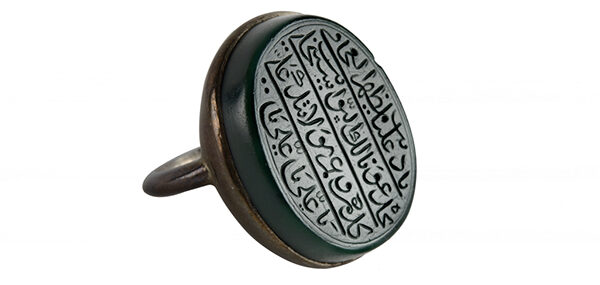Islamic talisman, often referred to as “Taweez” or “Talismanic Scrolls,” hold a significant place in Islamic culture and faith. These sacred objects are imbued with verses from the Quran, prayers, and other symbols believed to possess spiritual power and protective qualities. For centuries, Muslims have utilized talismans as a means to seek divine protection, guidance, and blessings in various aspects of life.
Understanding the Concept of Islamic Talismans
Islamic talismans are rooted in the belief that certain verses from the Quran, prayers, and symbols have the power to ward off evil, bring about healing, and attract divine favor. The practice of using talismans is deeply ingrained in Islamic tradition, drawing upon the teachings of the Prophet Muhammad and the Quran itself.
The Significance of Quranic Verses and Symbols
Central to the construction of Islamic talismans are specific verses from the Quran, chosen for their spiritual potency and relevance to the wearer’s needs. Verses such as Ayat al-Kursi (The Throne Verse) and Surah Al-Falaq (The Daybreak) are commonly inscribed onto talismanic scrolls for protection against malevolent forces and to invoke Allah’s guidance and mercy.
In addition to Quranic verses, Islamic talismans may feature intricate geometric patterns, calligraphy, and symbols such as the Hand of Fatima (Khamsa) or the Eye of Horus (Nazar), which are believed to offer further protection and blessings.
Crafting and Blessing of Islamic Talismans
The creation of Islamic talismans is a sacred process that often involves skilled artisans and spiritual practitioners. Talisman makers meticulously inscribe Quranic verses and prayers onto parchment, metal, or other materials, infusing each talisman with intention and devotion.
Before being entrusted to the wearer, Islamic talismans undergo a ritualistic blessing known as “Taweez Karna.” During this ceremony, prayers are recited, and blessings are invoked upon the talisman to activate its spiritual efficacy and protective qualities.
The Role of Islamic Talismans in Daily Life
Islamic talismans serve a variety of purposes in the lives of believers. Some wear talismans as a form of spiritual armor, seeking protection from physical harm, illness, or negative influences. Others use talismans to attract blessings, prosperity, and success in their endeavors, both worldly and spiritual.
Beyond their protective functions, Islamic talismans also serve as tangible reminders of faith and devotion. By carrying or wearing a talisman, individuals affirm their belief in the power of divine intervention and the guidance of Allah in their lives.
Respect and Reverence for Islamic Talismans
While Islamic talismans hold deep spiritual significance for believers, it is essential to approach them with reverence and respect. Talismans should be handled with purity of intention and used in accordance with Islamic teachings and ethics. Furthermore, it is important to recognize that the true source of protection and guidance comes from Allah alone, and talismans serve as conduits for His divine grace.
In conclusion, Islamic talismans represent a sacred tradition deeply rooted in the faith and spiritual heritage of Islam. Through the power of Quranic verses, prayers, and symbols, these talismans empower believers to strengthen their connection with Allah, seek protection, and navigate life’s challenges with faith and resilience. As symbols of divine grace and guidance, Islamic talismans continue to inspire and uplift the hearts of believers around the world.

